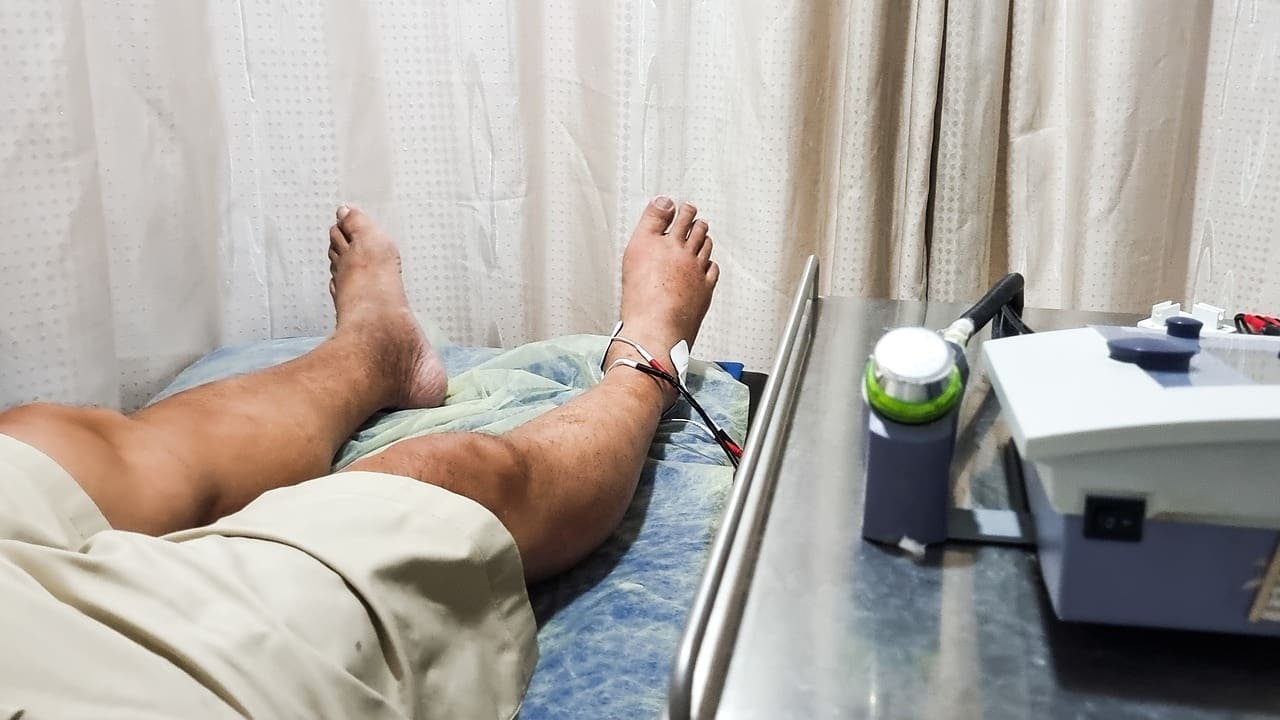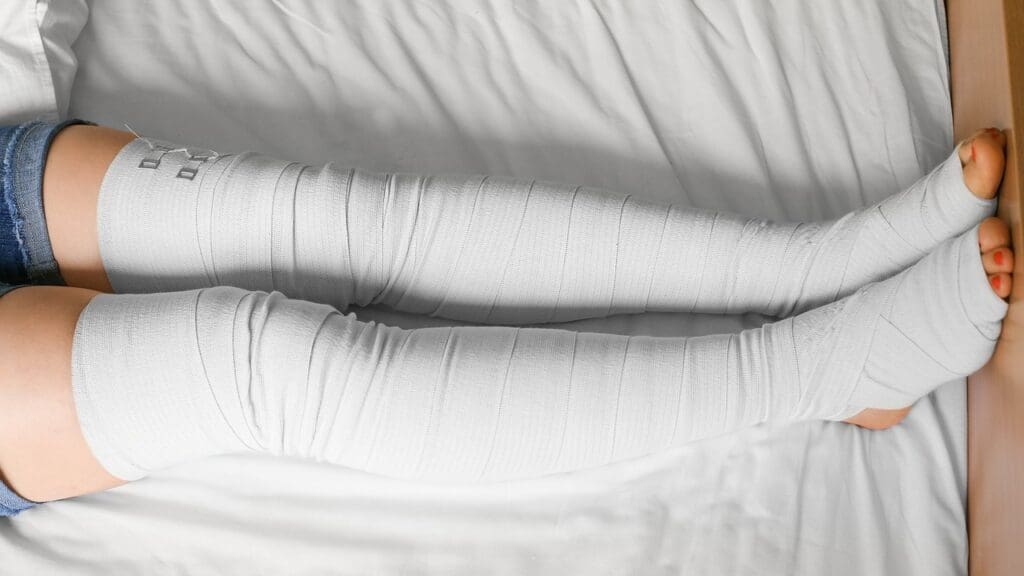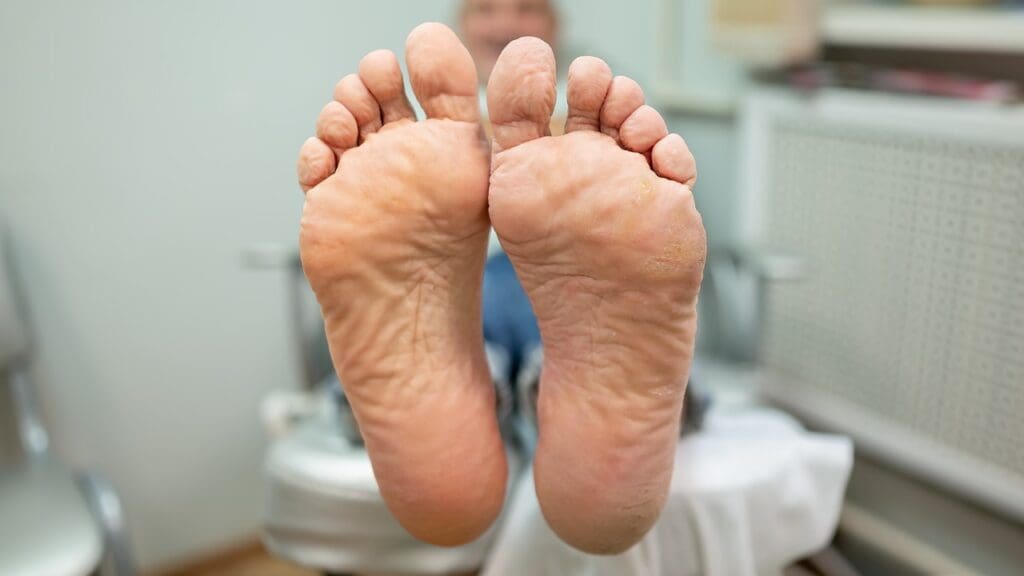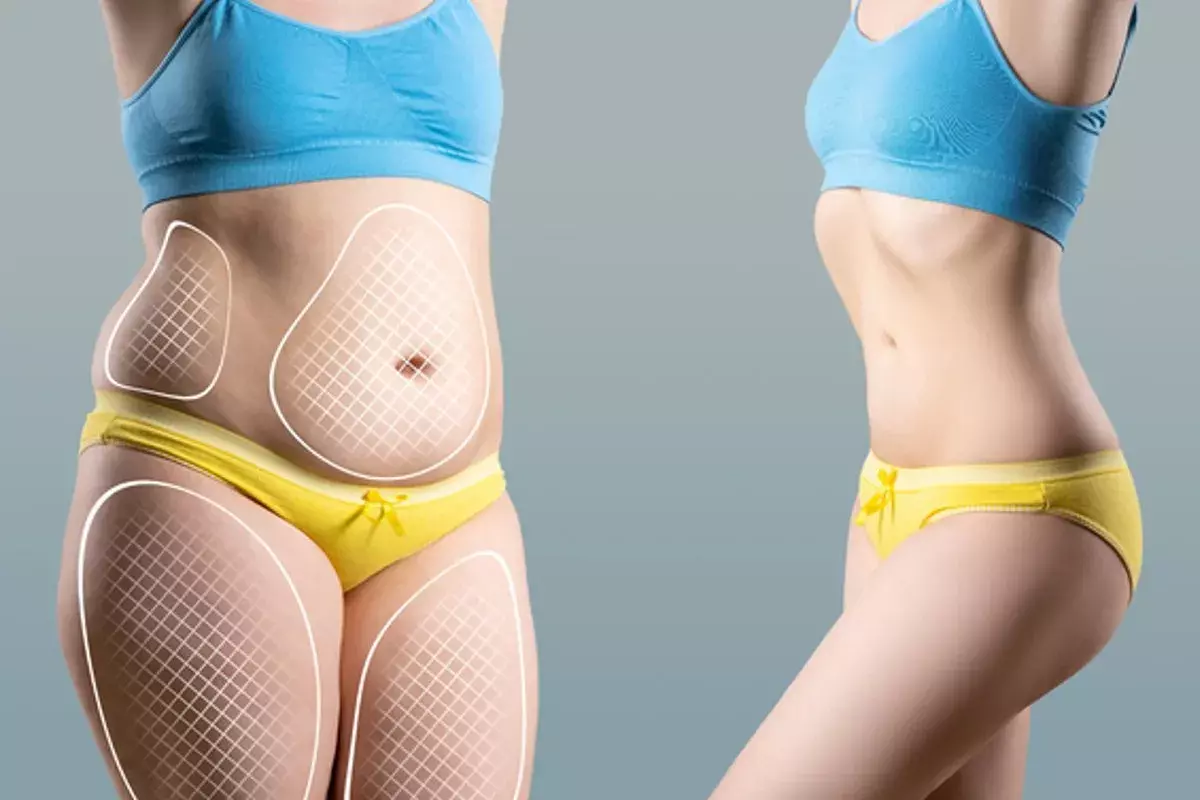
Feeling cold feet after knee or foot surgery can be scary. But knowing why it happens is key to getting better. At Liv Hospital, we focus on you, using top methods to help you heal and feel better.
Issues with blood flow and nerve health play a big role. We know how to handle these problems to keep you safe and avoid more issues.
We want to help you understand why you might feel cold after surgery. This way, you can move forward in your recovery with confidence.
Key Takeaways
- Understanding the causes of cold feet after surgery is vital for effective management.
- Changes in circulation and nerve function contribute to this condition.
- Liv Hospital’s patient-centered protocols ensure optimal healing and peace of mind.
- Managing symptoms effectively prevents further complications.
- Comprehensive insights into post-surgical symptoms aid in a confident recovery.
The Post-Surgical Cold Sensation: What’s Happening?
Many patients feel cold in their hands and feet after surgery. This can be confusing and worrying. It’s important to know if these feelings are normal or not.
Normal vs. Abnormal Temperature Changes
Changes in temperature after surgery can happen for several reasons. These include how the body reacts to anesthesia, changes in blood flow, and the area where the surgery was done. While some temperature changes are okay, feeling very cold for a long time, like feeling cold 3 days after surgery, might need more attention.
How Common is This Symptom?
Feeling cold in the feet after surgery is more common than you might think. Research shows that many patients have temperature-related feelings after surgery.
Statistical Prevalence in Different Surgeries
| Surgical Procedure | Prevalence of Cold Sensations |
|---|---|
| Knee Surgery | 35% |
| Foot Surgery | 42% |
| Orthopedic Surgeries | 28% |
Patient Experiences and Reports
Patients often say they feel cold or have cold feet after surgery, even when it’s not cold outside. These feelings can be different for everyone. Some people say their feet are cold to the touch, while others just feel cold inside.
Knowing how common and what causes cold feelings after surgery can help ease worries. We will look into the reasons and how to manage them in the next parts.
Cold Feet After Knee Surgery: Causes and Mechanisms
After knee surgery, some people feel their feet are cold. This can be scary and confusing. We will look into why this happens, focusing on blood flow and nerves.
Circulatory Changes Following Knee Procedures
Knee surgery can change how blood flows, making feet feel cold. There are two main reasons for this:
Temporary Blood Flow Restrictions
Surgery can block blood flow to the affected limb. This blockage makes the limb feel cold.
Vascular Response to Surgical Trauma
The body’s blood vessels react to surgery by changing how they flow blood. This change can make the feet feel cold.
Nerve-Related Factors
Nerves can also cause cold feet after knee surgery. The peroneal nerve is often hurt during these procedures.
Peroneal Nerve Sensitivity
The peroneal nerve helps control the lower leg and foot. Damage to this nerve can cause odd feelings, like coldness.
Temporary Nerve Disruption
Surgery can temporarily mess with nerve function. This can make the foot feel cold.
| Cause | Description | Effect on Foot Temperature |
|---|---|---|
| Temporary Blood Flow Restrictions | Reduced circulation due to surgical trauma | Cold sensation |
| Vascular Response to Surgical Trauma | Altered blood flow patterns | Temperature regulation affected |
| Peroneal Nerve Sensitivity | Nerve irritation or damage | Abnormal cold sensations |
Knowing why this happens can help manage the problem. We will look at ways to fix it in the next parts.
Why You Experience Cold Feet After Foot Surgery
Feeling cold feet after foot surgery can happen for a few reasons. We’ll look into these reasons to understand why it happens.
Local Tissue Trauma and Temperature Regulation
Foot surgery causes damage to local tissues. This damage can mess with how your body regulates temperature. The body’s response to this damage can affect blood flow, making your foot feel cold.
Post-Operative Swelling Effects
Swelling is common after foot surgery. This swelling can press on blood vessels and nerves. This can cut off circulation and make your foot feel cold.
Surgical Techniques and Their Impact on Sensation
The way foot surgery is done can affect how you feel afterward. Different methods can affect nerves and blood flow differently.
Minimally Invasive vs. Traditional Approaches
Minimally invasive surgeries cause less damage than traditional surgeries. But, even with smaller cuts, nerves can get hurt. This can make your foot feel cold.
Anesthesia Aftereffects
Anesthesia used during surgery can affect how you feel afterward. As the anesthesia fades, some people might feel cold or have other unusual sensations.
| Cause | Description | Effect on Foot Temperature |
|---|---|---|
| Local Tissue Trauma | Inflammatory response and disrupted blood flow | Cold sensation due to reduced circulation |
| Post-Operative Swelling | Compression of blood vessels and nerves | Impaired circulation leading to cold feet |
| Surgical Techniques | Varying impacts on nerve function and blood flow | Potential for cold sensations post-surgery |
Knowing why you might feel cold feet after surgery can help. By tackling the root causes, you can make your recovery more comfortable.
The Timeline of Cold Extremities Post Surgery
After surgery, feeling cold in your hands and feet can be confusing and uncomfortable. Knowing how long this might last can help ease worries and manage expectations.
Feeling Cold 3 Days After Surgery
In the first few days after surgery, it’s normal to feel cold in your hands and feet. This happens because your body is reacting to the surgery. It might be due to swelling and changes in blood flow.
Cold Sensations During the First Week
In the first week, the cold feeling might stick around as your body heals. Not moving much and the healing process itself can cause this.
Persistent Cold Feet Weeks to Months After Surgery
For some, feeling cold in their feet can last for weeks or even months. This can be because of how nerves heal and changes in blood flow.
When Recovery Takes Longer Than Expected
If you’re taking longer to get better, you might feel cold longer. This can be because of health issues, how big the surgery was, or complications after surgery.
Metabolic Adjustments During Healing
As you heal, your body makes changes that affect how you feel temperature. These changes can sometimes make your hands and feet feel cold for a while.
Here’s some data to show how recovery times can vary:
| Time Post-Surgery | Common Experiences | Influencing Factors |
|---|---|---|
| 3 Days | Cold sensations, swelling | Inflammation, limited mobility |
| 1 Week | Persistence of cold, initial healing | Circulatory changes, healing processes |
| Weeks to Months | Prolonged cold sensations | Nerve regeneration, metabolic adjustments |
Knowing when you might feel cold after surgery helps both patients and doctors. It lets us plan better care and support you through your recovery.
Understanding Why Your Foot Is Cold After Knee Surgery
After knee surgery, some people feel their foot is cold. This can be scary and confusing. We’re here to explain why this happens, looking at the nerves and how they connect.
The Knee-Foot Connection: Neural Pathways
The knee and foot are linked by complex nerves. These nerves can cause feelings in one area to show up in another. Knowing about these nerves is key to solving the problem of cold feet after knee surgery.
Referred Symptoms and Cross-Joint Effects
Referred symptoms happen when a problem in one area affects another. Knee surgery can cause nerves to be affected, leading to cold feet. This shows how our nervous system is connected.
Distinguishing Between Different Types of Cold Sensations
It’s important to tell apart different cold feelings. Knowing the cause helps find the right treatment.
Numbness vs. Temperature Changes
Numbness and feeling cold are not the same. Numbness might come from nerve issues, while cold could be from blood flow problems.
Localized vs. Generalized Cold
Cold feelings can be in one spot or all over. Knowing where the cold is can help figure out why.
Understanding nerves and symptoms helps solve the problem of cold feet after knee surgery. If you’re feeling this, talk to your doctor to find the best solution.
Complications That Cause Cold Extremities Post Surgery
After surgery, some people might feel cold in their hands and feet. This can be normal, but if it lasts or gets worse, it might mean there’s a problem. You should see a doctor if you notice this.
Peripheral Nerve Injuries
Up to 5% of surgeries can lead to nerve damage. This damage can cause strange feelings, like feeling cold.
Identifying Foot Drop Symptoms
Foot drop is a problem that can happen if nerves are damaged. It makes it hard to lift the front of your foot. You might notice:
- It’s hard to walk normally
- Your walk might sound like slapping
- Feeling numb or tingly on the top of your foot
Peroneal Nerve Damage Signs
Damage to the peroneal nerve can also make your foot feel cold. You might see:
- Weakness in your ankle and foot muscles
- Numbness or tingling
- Your foot might feel cold
Circulatory Complications
Circulation problems can also make your hands and feet feel cold after surgery. Deep vein thrombosis and arterial insufficiency are two big concerns.
Deep Vein Thrombosis Concerns
Deep vein thrombosis is when a blood clot forms in a deep vein, usually in the leg. It might not directly cause coldness, but it can lead to swelling and pain. This can make your temperature feel off.
Arterial Insufficiency
Arterial insufficiency means your arteries aren’t bringing enough blood to your body. This can make your hands and feet feel cold. It might be because of a pre-existing condition or something that happened during surgery.
Cold Hands and Feet After Open Heart Surgery
Open heart surgery can sometimes cause your hands and feet to feel cold. This might be because of the surgery itself, being too cold during the operation, or changes in blood flow after surgery.
If you’re feeling really cold in your hands and feet after surgery, you should talk to your doctor. Catching and treating problems early can really help your recovery.
The Role of Immobility in Temperature Regulation
Being immobile after surgery can affect how our body keeps its temperature. When we move less, our blood flow changes. This can alter how we stay warm.
How Limited Movement Affects Blood Flow
After surgery, moving less can reduce blood flow to our hands and feet. This makes them feel colder. Poor circulation can also cause other problems. So, it’s key to move safely while recovering.
Muscle Inactivity and Heat Production
Muscles help keep us warm. When we’re not moving, they don’t work as much. This means we make less heat, making our hands and feet colder.
Breaking the Cycle: Safe Movement During Recovery
To fight the cold from immobility, we need to move safely. Gentle exercises, okayed by our doctor, boost blood flow and heat.
Physician-Approved Exercises
Even from bed, we can do simple moves like toe wiggling and ankle rotations. These help blood flow and fight cold in our extremities.
Gradual Mobility Progression
As we get better, we can move more. This might mean short walks or stretching. Slowly getting active helps our circulation and temperature get back to normal.
| Exercise | Description | Benefit |
|---|---|---|
| Toe Wiggling | Gently wiggle toes for 5 minutes | Improves circulation |
| Ankle Rotations | Rotate ankles in both directions | Enhances blood flow |
| Leg Lifts | Lift legs slightly while lying down | Stimulates circulation |
Therapeutic Cold: Why Ice Behind Knee After Foot Surgery
Cryotherapy, or cold therapy, is a key tool for managing pain after surgery. It’s often used behind the knee after foot surgery. This method uses cold to lessen inflammation and pain.
Strategic Cooling Points for Maximum Benefit
Putting ice behind the knee targets pain and swelling in the foot. This method helps in healing by reducing pain and swelling.
The Science of Cryotherapy in Surgical Recovery
Cryotherapy works by making blood vessels smaller and reducing blood flow. This cuts down on inflammation and pain. Used right, it’s a great addition to other recovery methods.
Proper Application Techniques
To get the most from cryotherapy, use it correctly. Choose the right temperature and apply for the right time. Also, don’t put ice directly on your skin to avoid injuries.
Duration and Frequency Guidelines
How long and how often to use ice depends on your situation and surgery. Usually, 15-20 minutes of ice, with at least 30 minutes off, is best.
Avoiding Cold-Related Complications
Even though cryotherapy is helpful, it can cause problems like nerve damage or skin issues. Wrap the ice pack well and watch your skin to avoid these issues.
| Cryotherapy Application Guidelines | Recommended Settings | Precautions |
|---|---|---|
| Duration | 15-20 minutes | Wrap ice pack to avoid direct skin contact |
| Frequency | Every 30-60 minutes | Monitor skin for signs of irritation |
| Temperature | As cold as tolerable | Avoid extremely cold temperatures |
Knowing and using cryotherapy right can help improve your recovery. It can also lessen pain after surgery.
Effective Solutions for Managing Cold Feet After Surgery
Managing cold feet after surgery involves both non-medical and medical steps. We’ll look at ways to tackle this issue and make recovery more comfortable.
Non-Pharmacological Approaches
Non-medical methods are often the first choice for cold feet after surgery. These include lifestyle changes and simple ways to boost blood flow and warmth.
Appropriate Footwear and Coverings
Wearing warm, comfy shoes and using the right coverings can help a lot. Thermal socks and insulated shoes are good for keeping feet warm.
Gentle Circulation-Boosting Activities
Doing gentle exercises can help blood flow and warm the feet. Simple moves like ankle rotations and toe wiggling are helpful.
Environmental Temperature Management
Keeping the environment warm is key. Make sure the room is at a comfortable temperature. Use heated blankets if it’s cold.
Medical Interventions
If simple steps don’t work, medical help might be needed. Always talk to your doctor to find the best solution.
When to Consult Your Surgeon
If cold feet don’t go away or are with other bad symptoms, see your surgeon. They can check and guide you on what to do next.
Available Treatments for Persistent Symptoms
There are many treatments for cold feet that won’t go away. These include medicines for better blood flow and physical therapy.
Physical Therapy Approaches
Physical therapy is very helpful for improving blood flow and managing cold feet. It includes massage and exercises tailored for each patient.
Conclusion: Navigating Your Recovery Journey
Understanding cold feet after knee or foot surgery is key to a smooth recovery. We’ve looked at how changes in blood flow, nerve issues, and tissue damage can cause cold feelings. These factors are important to know about.
Feeling cold after surgery can be scary. But knowing what causes it and how to fix it can help a lot. By understanding the role of staying in one place, the benefits of cold therapy, and how to manage symptoms, you can make your recovery easier.
It’s vital to manage cold feelings actively. This includes trying non-medical ways and getting help from doctors. By being involved in your recovery and working with your healthcare team, you can reduce pain and heal faster.
Why do I experience cold feet after knee surgery?
Cold feet after knee surgery can happen due to changes in blood flow and nerve function. The surgery can disrupt blood circulation. The peroneal nerve also plays a role in how we feel temperature.
Is it normal to feel cold after surgery?
Yes, feeling cold after surgery is common. It’s often because of changes in blood flow, nerve function, and how the body reacts to surgery.
How long does it take for cold sensations to resolve after surgery?
The time it takes for cold sensations to go away varies. Some people might feel better in a few weeks. Others might have cold feet for months.
Can immobility after surgery contribute to cold extremities?
Yes, not moving much can make blood flow and heat production worse. This can make your extremities feel cold. Doing gentle exercises and moving more can help.
Why is ice used behind the knee after foot surgery?
Ice is used behind the knee after foot surgery to help with swelling and pain. It’s part of cryotherapy. Applying ice in the right way can be very helpful.
What are some non-pharmacological approaches to managing cold feet after surgery?
Non-pharmacological ways include wearing the right shoes, doing gentle exercises, and taking care of your wound. These can help with healing and improve blood flow.
Can circulatory complications cause cold extremities after surgery?
Yes, problems with blood flow like deep vein thrombosis and arterial insufficiency can cause cold extremities. If you have persistent or severe cold, you should see a doctor.
How can I distinguish between normal and abnormal cold sensations after surgery?
Normal cold after surgery is usually mild and short-lived. Abnormal cold can be severe, persistent, or with other symptoms like numbness or pain. If you’re unsure, talk to your doctor.
Are cold hands and feet after open heart surgery a common complication?
Cold hands and feet can happen after open heart surgery. It’s due to changes in blood flow and nerve function. It’s important to watch and manage these symptoms for a smooth recovery.
When should I seek further medical advice for cold feet after surgery?
You should see a doctor if you have persistent or severe cold, numbness, pain, or other concerning symptoms. Your doctor can check your condition and help manage your symptoms.
References
- Anthony Echo, MD : https://www.anthonyechomd.com/blog/foot-drop-after-knee-surgery-why-you-need-to-address-it-early
- PMC – PubMed Central : https://pmc.ncbi.nlm.nih.gov/articles/PMC6197168
- Hip & Knee Ortho : https://www.hipkneeortho.com.sg/foot-problems-after-knee-replacement
- MyHealth.Alberta.ca : https://myhealth.alberta.ca/Health/aftercare/information/pages/conditions.aspx?hwid=zc2421










